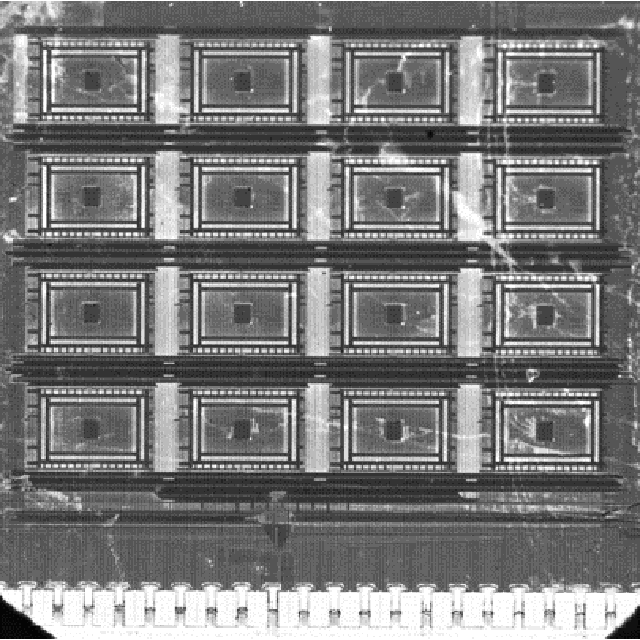Artificial intelligence is making major progress today, but it faces a challenge: its considerable energy consumption, which limits its applications and raises environmental issues. It is now well understood that this consumption comes from the separation, in computers, between calculation and memory functions. As artificial intelligence uses a lot of data, it requires a lot of computer memory, which is costly to access in terms of energy. Our brains are much more energy efficient because the memory functions are integrated as close as possible to the computation functions.
Memristors are a new memory technology that uses nanodevices and is integrated at the core of the computation, thus reproducing the brain's energy efficiency strategy. A team involving three CNRS laboratories (Centre de Nanosciences et de Nanotechnologies, Institut Matériaux Microélectronique Nanosciences de Provence, Institut des systemes intelligents et robotique), CEA LETI, and the startup Hawai.tech has built a "Bayesian machine", a small artificial intelligence with memristors. The prototype, presented in the Nature Electronics journal, comprises 2048 hafnium oxide memristors and 30,080 silicon transistors (MOSFETs). The machine can recognize a human gesture using thousands of times less energy than a traditional solution based on a microcontroller.
The Bayesian machine implements a Bayesian inference model, a type of artificial intelligence complementary to deep learning, today's most widely used AI technique. Bayesian inference excels in situations where little information is available; the Bayesian machine would be particularly well suited for the realization of embedded devices for patient monitoring, or in smart sensors for monitoring the aging of buildings or industrial facilities.
The next challenge for memristor-based artificial intelligence is learning, i.e., adapting to new data. It could then, for example, adapt to the evolution of a patient's illness. This challenge will be taken up as part of the PEPR electronic acceleration program, which aims to generate innovations to accelerate growth and relocate production processes in France or Europe using new technological solutions. This project involves the CNRS and the CEA and has just been financed to the tune of 86 million euros.
References :
A Memristor-Based Bayesian Machine
K.-E. Harabi1, T. Hirtzlin1, C. Turck1, E. Vianello2, R. Laurent3, J. Droulez3,4, P. Bessière4, J.-M. Portal5, M. Bocquet5, D. Querlioz1
Nature Electronics, dec. 2022
DOI: doi.org/10.1038/s41928-022-00886-9
1Université Paris-Saclay, CNRS, Centre de Nanosciences et de Nanotechnologies, Palaiseau, France
2Université Grenoble-Alpes, CEA-LETI, Grenoble, France
3HawAI.tech, Grenoble, France
4Sorbonne Université, CNRS, Institut des Systèmes Intelligents et de Robotique, Paris, France
5Aix-Marseille Université, CNRS, Institut Matériaux Microélectronique Nanosciences de Provence, Marseille, France
Contact : Damien Querlioz
Figure : Photo of the Bayesian machine (size 2mmx2mm). The sixteen blocks of memristors (appearing as black squares) are surrounded by transistor-based circuits performing the artificial intelligence calculations as close to the memory as possible.









